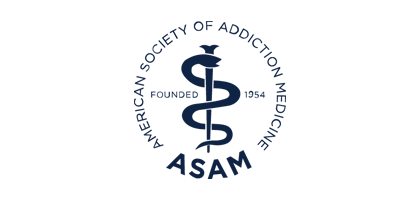Blog
ASAM and AACN Partner To Increase Critical Addiction Training for Nurse Practitioners
SAMHSA Grant Awarded to Provide Nurse Practitioner Substance Use Disorder Medical Education and Effectively Address Addiction Treatment Gap
October 31, 2019 (Rockville, MD) - The American Society of Addiction Medicine (ASAM), in partnership with the American Association of Colleges of Nursing (AACN), proudly announces the Nurse Practitioner Substance Use Disorder Medical Education Project (NP-SUDMedEd), an essential and immediate solution for significantly increasing substance use disorder (SUD) education for nurse practitioners (NPs). NP-SUDMedEd equips participating NPs with the knowledge and skills needed to reduce the addiction treatment gap through the delivery of nonjudgmental and compassionate care that encourages individuals with SUD to initiate and remain in treatment.
Nurses are uniquely positioned to improve the health of persons with addiction because they have “more face-to-face interactions with patients in many treatment settings than any other health care provider...However, they must have knowledge about addiction and treatment in order to be effective caregivers.”[1] A timely partnership between AACN and ASAM and funding from the Substance Abuse and Mental Health Services Administration (SAMHSA) made this two-year grant project possible. AACN serves as the national voice for baccalaureate and graduate nursing education, and ASAM is a professional medical society representing over 6,500 physicians, clinicians, and associated professionals in the field of addiction medicine. The grant project aims to expand the integration of SUD into the standard curriculum of nurse practitioner programs through development and implementation of online modules for NP students.
“Evidence-based education for NPs about addiction in nonjudgmental ways is critical to increasing patient access to evidence-based treatment,” said Paul H. Earley, MD, DFASAM, president of ASAM. “Addiction is a treatable, chronic medical condition involving complex interactions among brain circuits, genetics, the environment, and an individual’s life experiences. Only when the medical community is properly trained to treat addiction as a disease with appropriate research verified protocols, can we make significant progress in overcoming the nation’s addiction epidemic. We are thrilled to partner with AACN and leverage the SAMHSA grant funds to significantly improve the medical community’s ability to treat addiction and save lives.”
“On behalf of academic nursing, we applaud ASAM for their commitment to advancing collaborative, interprofessional solutions to combating SUD on a national scale,” said Deborah Trautman, PhD, RN, FAAN, president and chief executive officer of AACN. “AACN is proud to join with ASAM on their new Expansion of Practitioner Education initiative, which will focus, in part, on expanding the integration of evidence-based SUD education into the curriculum of nursing schools offering nurse practitioner programs.”
NP-SUDMedEd’s goal is to reduce stigma around addiction and to transform the healthcare workforce by ensuring all clinicians have a fundamental understanding of addiction. NP-SUDMedEd expands the integration of addiction education into the standard curriculum of NP programs through the development and implementation of a high-quality, evidence-based online modules for NP students. The curriculum will include content on 1) screening, brief intervention, and referral to treatment (SBIRT) strategies; 2) assessment; and 3) treatment principles and their application particularly regarding alcohol, marijuana, stimulants, and opioids. Working together, ASAM and AACN aim to reach 750 NP students in Year 1 and 750 in Year 2 for a total of 1,500 NP students.
The important work of implementing the integrated curriculum has begun and will launch in schools in January 2020.
###
About ASAM
The American Society of Addiction Medicine (ASAM), founded in 1954, is a professional medical society representing over 6,500 physicians, clinicians and associated professionals in the field of addiction medicine. ASAM is dedicated to increasing access and improving the quality of addiction treatment, educating physicians and the public, supporting research and prevention, and promoting the appropriate role of physicians in the care of patients with addiction. For more information, visit www.ASAM.org.
About AACN
The American Association of Colleges of Nursing (AACN) is the national voice for academic nursing representing 825 schools of nursing nationwide. AACN establishes quality standards for nursing education, influences the nursing profession to improve health care, and promotes public support of baccalaureate and graduate nursing education, research and practice. For more information, visit www.aacnnursing.org.
[1]Bartlett R, Brown L, Shattell M, Wright T, Lewallen L. Harm reduction: compassionate care of persons with addictions. Medsurg Nurs. 2013;22(6):349–358.

